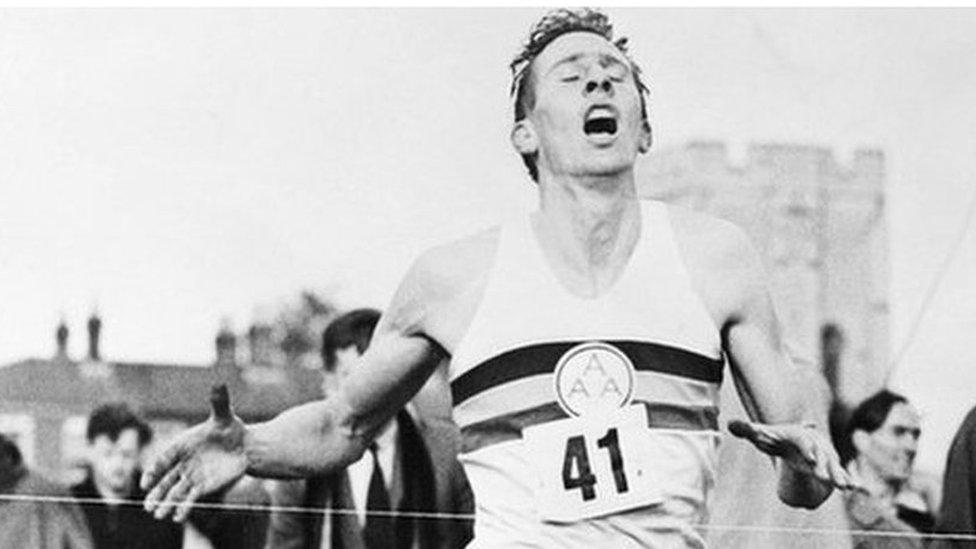Sir Roger Bannister Westminster Abbey memorial stone unveiled
- Published
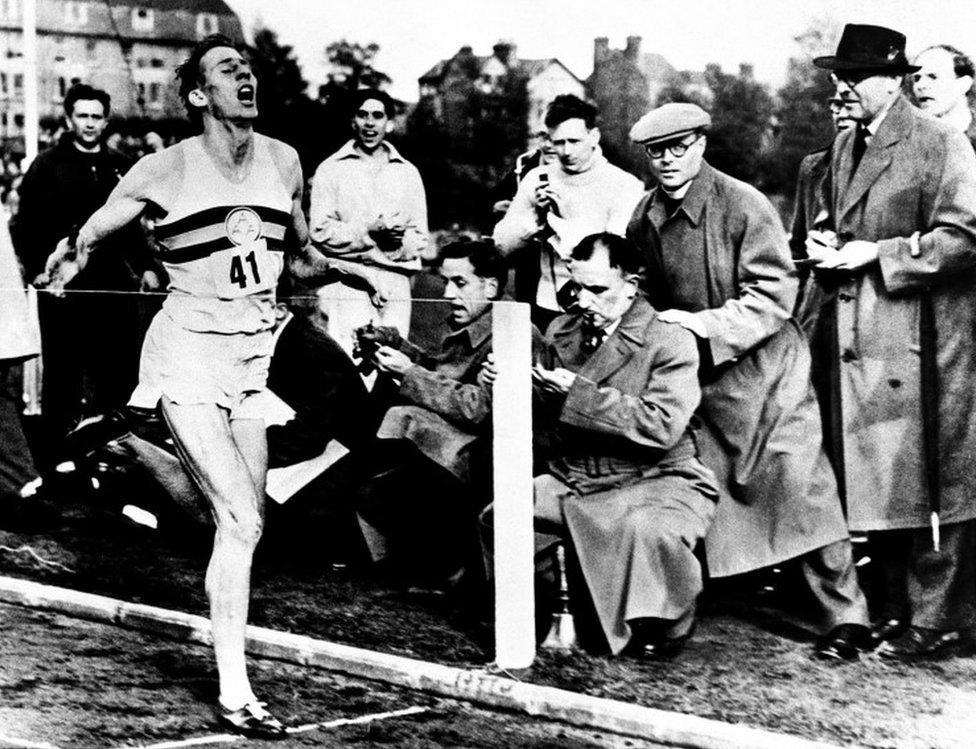
As a medical student in Oxford, Sir Roger used his knowledge to devise his own training regime
Sir Roger Bannister has been honoured with a memorial stone within Westminster Abbey's Scientists' Corner.
He was the first man to run a mile in under four minutes, achieving the record at the Iffley Road track at Oxford University on 6 May 1954.
The then-medical student ran the distance in three minutes and 59.4 seconds.
Sir Roger later became a distinguished neurologist, and died in March 2018, aged 88.
The blue Purbeck marble memorial stone was unveiled at a dedication service involving members of Sir Roger's family, friends and former colleagues.
Designed and carved by the artist John Maine, it lies near to the graves of Sir Isaac Newton, Charles Darwin, and Prof Stephen Hawking.
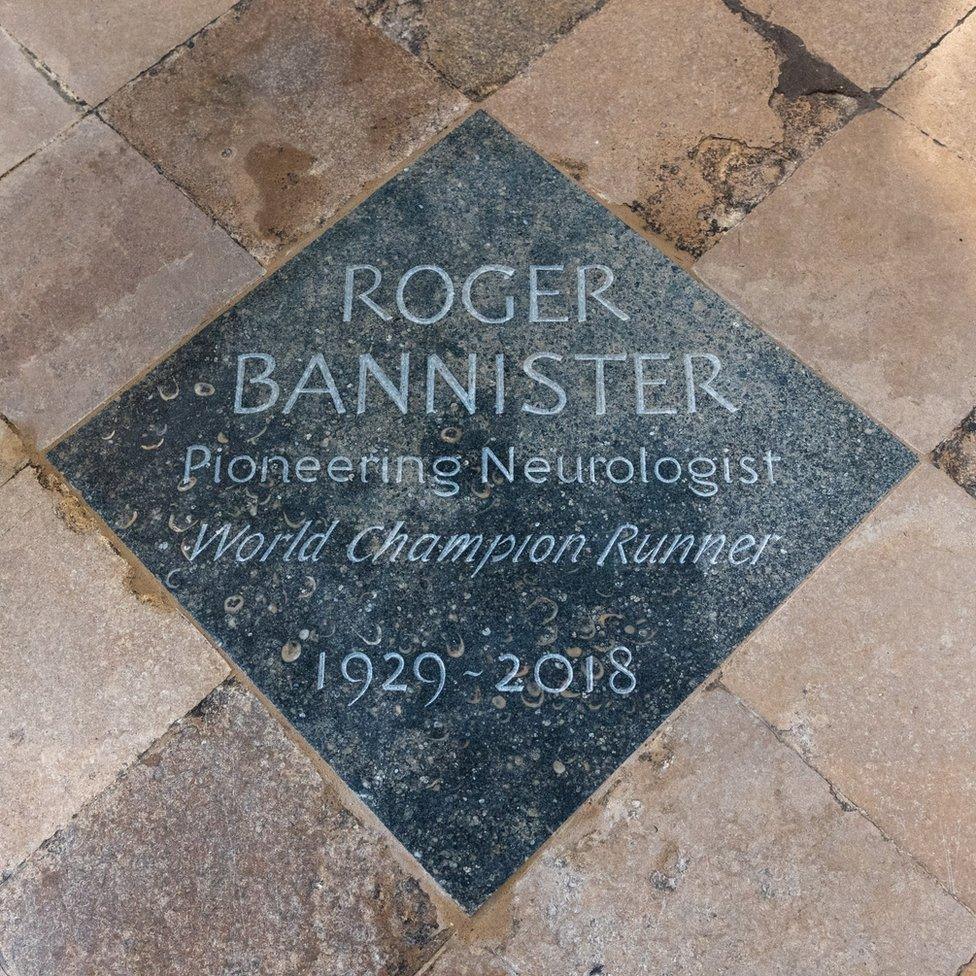
The stone references Sir Roger's work as a "pioneering neurologist" above his athletics achievements
His daughter, the Reverend Charlotte Bannister-Parker, described the honour as an "extraordinary privilege".
She said: "To have my father's work, as a doctor and medical researcher recognised in the abbey means so much to us all.
"While his athletics career lasted eight years, his medical one lasted over 60 and was equally groundbreaking.
"He was passionate and most proud of his work as a neurologist and work on the autonomic nervous system."
She added: "We are deeply grateful that my father's lifetime achievements will be remembered in this magnificent, sacred space forever."
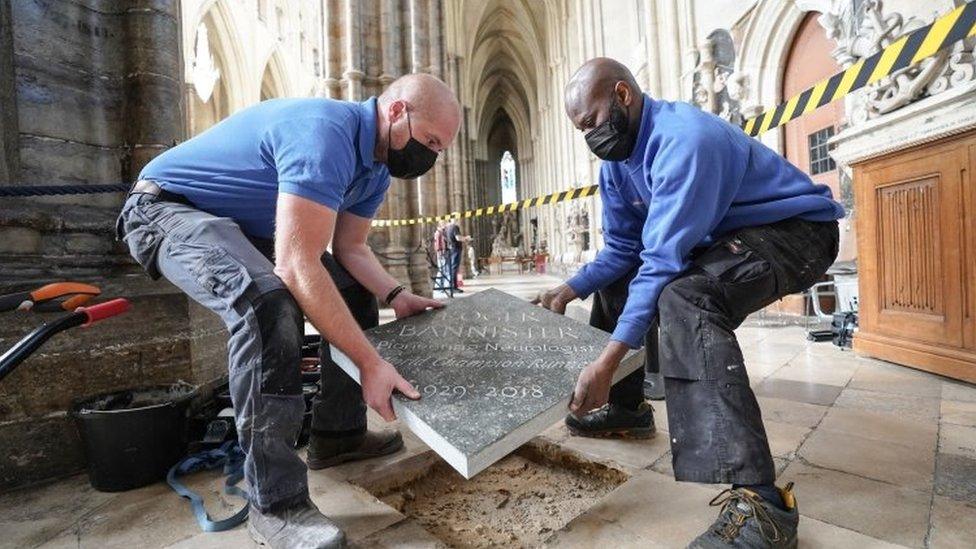
The stone was placed near to the graves of Sir Isaac Newton, Charles Darwin, and Prof Stephen Hawking
Sir Roger used his medical knowledge to devise his own training regime and investigate the mechanical aspects of running.
After conquering the sub four-minute mile he won a Commonwealth and a European Championship gold medal later that year.
But at the end of 1954 he retired from athletics to pursue his medical studies, specialising in research and treatment of the the body's automatic functions, such as heartbeat, blood pressure, and digestion.
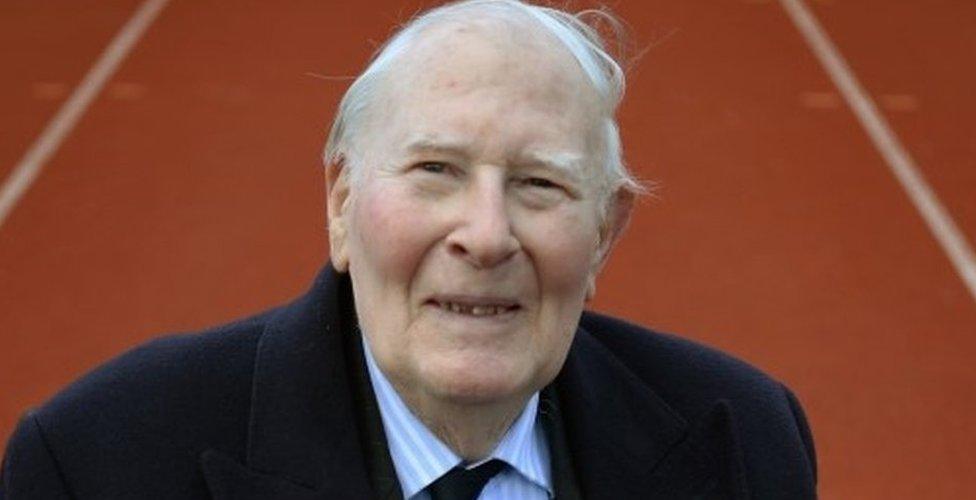
Sir Roger was "most proud of his work as a neurologist", his daughter said

Follow BBC South on Facebook, external, Twitter, external, or Instagram, external. Send your story ideas to south.newsonline@bbc.co.uk, external.
Related topics
- Published22 July 2021
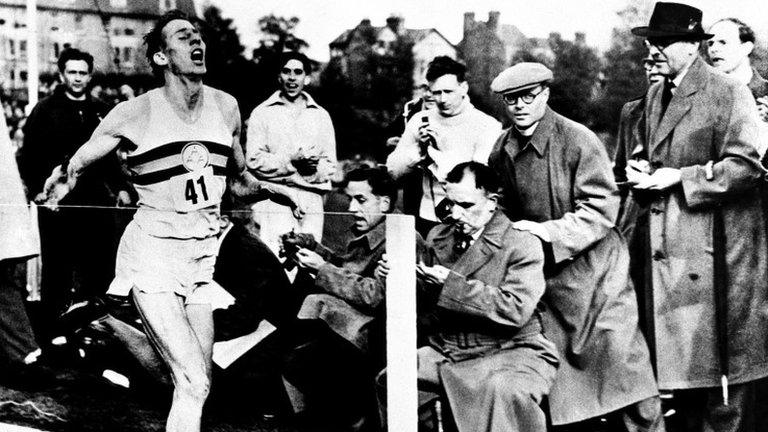
- Attribution
- Published4 March 2018
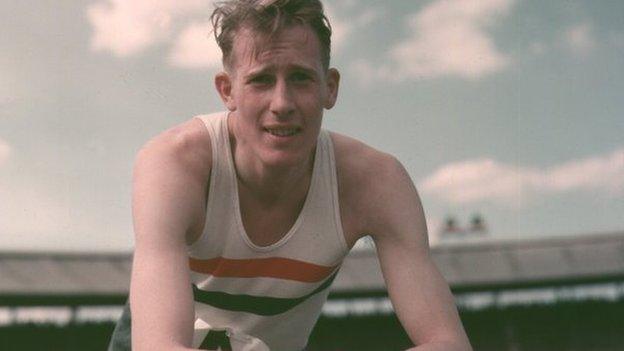
- Published4 March 2018
